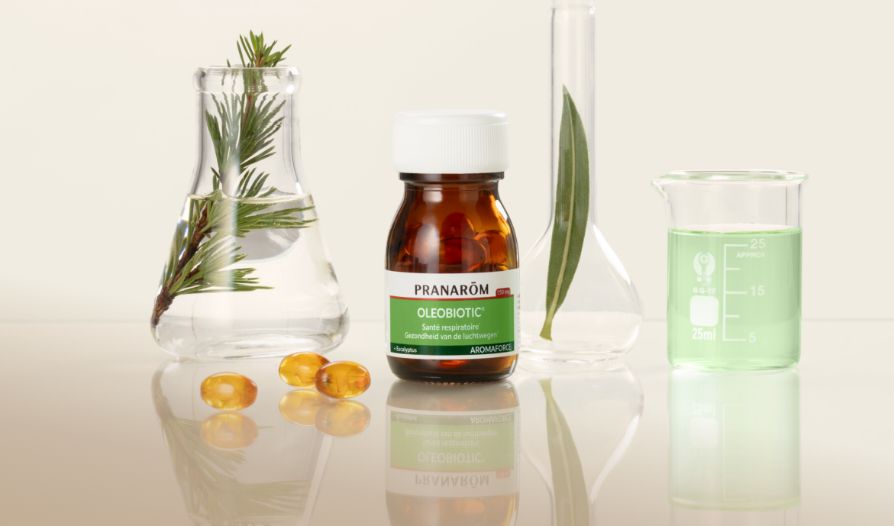Dysmenorrhea , better known as menstrual pain , affects many women around the world. This disorder is often overlooked, even though it can be disabling and seriously disrupt daily life. How to relieve dysmenorrhea ? Definition, causes and symptoms, natural approaches: discover how to find more comfort and well-being during your menstrual cycle.
What is dysmenorrhea?
Dysmenorrhea is characterized by severe pelvic pain during menstruation. It is generally classified into two types:
- Primary dysmenorrhea : This is menstrual pain with no identifiable underlying cause. It usually appears a few years after the first menstrual period and tends to diminish with age or after pregnancy.
- Secondary dysmenorrhea : This form is linked to underlying gynecological conditions, such as endometriosis, uterine fibroids or pelvic infections. The pain is often more intense and can appear at any time during reproductive life.
In addition to pelvic pain, symptoms of dysmenorrhea may include nausea, vomiting, diarrhea, and general fatigue. Diagnosis of dysmenorrhea is based primarily on the patient's clinical history , so it is important to take the time to understand her menstrual cycle . A physical examination may also be necessary to rule out other medical conditions, and additional testing is sometimes recommended to identify secondary dysmenorrhea.
Painful periods: what are the causes?
Primary dysmenorrhea is usually associated with excessive production of prostaglandins , chemicals that cause the uterus to contract. These contractions can be intense enough to reduce blood supply to the uterus, leading to painful cramps during menstruation.
Secondary dysmenorrhea is often the result of problems affecting the reproductive organs. Some of the main causes include:
- Endometriosis : Tissue similar to the lining of the uterus grows outside the uterus. This tissue reacts to menstrual hormones, which can lead to significant inflammation and pain during menstruation, as the ectopic tissue can bleed and cause irritation.
- Adenomyosis : This condition is characterized by the growth of the uterine lining inside the muscles of the uterus. During menstruation, this can cause heavier bleeding and more severe pain than normal.
- Uterine fibroids : These benign tumors can grow inside the uterus, on its walls, or outside. Depending on their location and size, they can cause pain and abnormal bleeding.
- Endometrial polyps : These small growths on the wall of the uterus can increase bleeding and pain during periods.
- Problems with intrauterine contraception : An improperly positioned intrauterine device (IUD) can cause pain. Similarly, some types of hormonal contraception may not be suitable for all women and may cause unpleasant symptoms.
Raspberry bud to better manage dysmenorrhea
Raspberry bud is a natural remedy that is gaining popularity for the management of menstrual disorders , including dysmenorrhea. This bud, from the raspberry plant (Rubus idaeus), is used in gemmotherapy, a branch of herbal medicine that focuses on the use of the embryonic tissues of plants.
Thus, raspberry bud is used for its regulating properties on the female hormonal system . It is considered a "balancing" plant for the reproductive system, supporting both the menstrual cycle and uterine health. It is rich in tannins, flavonoids, and organic acids, which are recognized for their antioxidant and anti-inflammatory properties .
Raspberry bud is therefore particularly appreciated for its ability to intervene in the regulation of irregular menstrual cycles and to support the reduction of menstrual pain associated with dysmenorrhea . Here is how this natural bud concentrate can participate in the management of symptoms:
Due to its antispasmodic properties, it also helps to relax the muscles of the uterus , which can help reduce menstrual cramps. By soothing excessive contractions, it can therefore help alleviate the intense pain often felt during episodes of dysmenorrhea.
Other Natural Approaches to Relieve Menstrual Pain
To relieve dysmenorrhea, many women prefer to turn to more natural solutions to avoid the side effects of these nonsteroidal anti-inflammatory drugs (NSAIDs) and hormonal contraceptives. Here are some wellness avenues to explore in addition to approaches related to gemmotherapy:
- Diet and hydration : Eating a balanced diet rich in fruits, vegetables, and whole grains can help reduce inflammation. Hydration is also crucial. For example, drinking enough water can help reduce the severity of menstrual cramps;
- Exercise : While it may seem counterintuitive, light exercise like yoga or walking can help reduce menstrual pain. That's because physical activity promotes circulation and the production of endorphins, the body's natural painkillers;
- Relaxation techniques : Methods such as meditation, deep breathing and yoga can play a role in managing stress and reducing the perception of pain;
- Complementary therapies : Acupuncture and massage are often used to help relieve menstrual pain from dysmenorrhea. These practices can help relax the uterine muscles and promote circulation in the pelvic area.
Please note that it is essential to consult a physician for a proper diagnosis and to discuss any approach to managing dysmenorrhea. Some underlying conditions (such as endometriosis) require a specific medical approach.
When to consult in case of pain during periods?
If you suffer from dysmenorrhea, it is important to make an appointment with your doctor when you experience the following situations regarding your period:
- Menstrual pain does not improve despite use of nonsteroidal anti-inflammatory drugs (NSAIDs);
- You start experiencing menstrual pain as an adult when your periods were not painful before;
- The pain intensifies abnormally;
- The pain lasts for several days, occurring before (premenstrual syndrome) and after your period;
- Menstrual pain has a significant impact on your daily life, resulting in missed school or work.
It is also crucial to seek medical attention if your painful periods are accompanied by the following symptoms:
- Fever ;
- Unusual vaginal discharge, such as thick, yellowish discharge;
- Bleeding between periods;
- Excessively heavy periods;
- Pain during sexual intercourse;
- Symptoms of irritable bowel syndrome or other digestive disorders.
These symptoms may be signs of underlying conditions that require medical evaluation for proper diagnosis and treatment to relieve PCOS symptoms.













